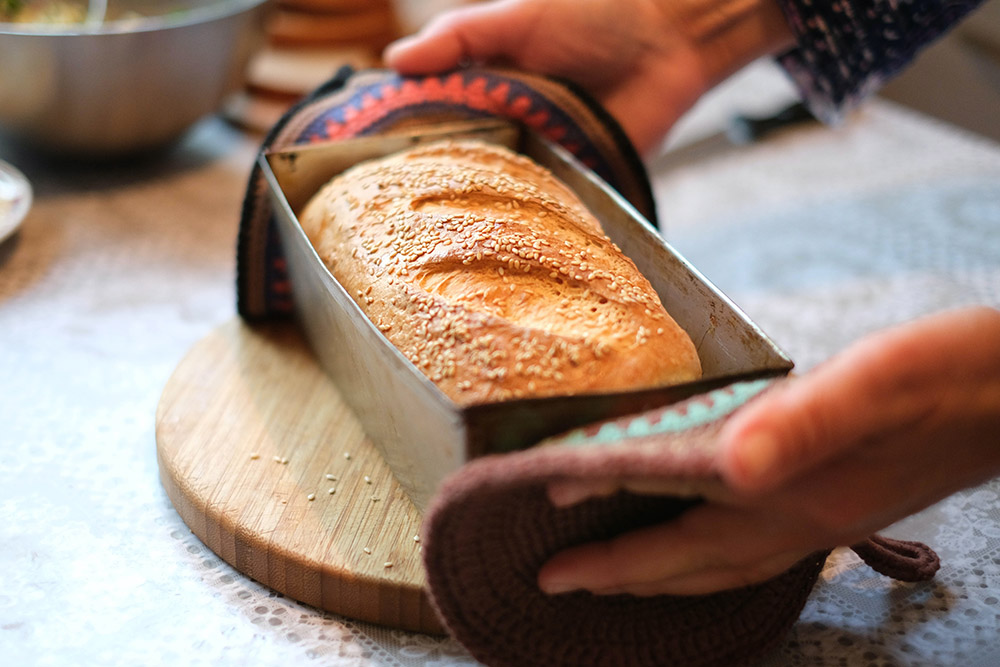
(Unsplash/Serghei Savchiuc)
"This saying is hard; who can accept it?" This line from today's Gospel will be oft-quoted in parishes that choose to read the selection from Ephesians that begins, "Wives should be submissive to their husbands." This section of Ephesians is based in ancient patriarchal culture; although it hints at mutuality, it falls short of the mark when speaking to contemporary culture's appreciation of the equal dignity of all human persons.
This applies to us like Jesus' call to treat others as the good Samaritan treated the sufferer: Loving the victim requires us to do all we can with the best we have at hand. Jesus does not expect us to buy a donkey to carry our cities' victims; nor are we expected to live by patriarchal customs.
We probably share a lot with the sincere, vacillating Israelites Joshua called together in the incident recounted in today's first reading. Joshua called for a take-it-or-leave-it commitment: "Choose either the God who brought you through the desert or the attractive gods that surround you."
The people swore, "Far be it from us to forsake the LORD!"
But doggone it, they hadn't really grasped the radicality of the choice. Joshua demanded that they pledge absolute commitment to God of the Exodus, the God about whom they had complained in the desert, the God who required them to leave the known behind to follow a hope for which they had no proof, the God whose commands they ignored again and again over the course of 40 years.
Their other option was to serve gods they could make in their own image, gods of manipulation and materialism, gods of power and might.
The people swore their choice. From then on, they would try and often fail at fulfilling their promise. In the process, they would gain saving knowledge; they would learn that their forgiving God only wanted them to try to give it their all. Their desire to love, their frequent repentance and conversion, would define them in God's eyes more than all their failures.
The God Joshua spoke for was also the God of Jesus. People had difficulty with Jesus because he did not fit their concept of God and holiness. He was too simple, too weak, too much like them. Although they probably could not have articulated it exactly this way, Jesus appeared too unimposing to claim to be the one sent by God as the new "bread come down from heaven."
Jesus was scandalously ordinary, except in how he loved God and made God's love available to others.
It seems that Jesus understood why people rejected him better than they did themselves. Knowing where it would all lead, he questioned them, "If the claim that I came from God shocks you, what will happen when you see me ascend to where I was before?"
Advertisement
In John's Gospel, Jesus' being raised up implied the cross, the most disappointing, confusing, tragic, idol-smashing image of God any world religion has ever presented. But that was what Jesus offered. He said: "I am the bread of life. Those who accept and believe in me, in my sacrifice, in my weakness and in my suffering, can receive the life I offer."
That is stated another way in Philippians 2, a hymn that praises Christ who took the form of a slave to show us godliness. St. Irenaeus spoke of the same mystery, saying that God became what we are that we might become what God is.
Indeed, this saying is hard. Neither Jesus' words nor his deeds portray a mighty God who manipulates history or attempts to force belief via miracles or threat of punishment. The God of Jesus, the God present in Jesus, nourishes and gives life like bread does. One must receive it. God's love and spirit are available to those who ask, God never imposes.
Jesus represented and brought others into contact with the God who invited them into an exchange of love that leads to total self-giving on both sides.
In the long run, this God can seem more frightening than the gods of power and might. This God cannot be tamed with sacrifices or long, loud prayers. This God wants nothing less than everything we are and offers nothing less than God's own self.
This is far more than we can take in. Thus, this God offers to come to us through simple signs like bread. With each Communion, we renew the radical choice to accept and reciprocate God's offer of love.
The more we understand it, the more we know we will not live up to it. But rather than retreat, we say with Peter, "To whom shall you go? You have the words of eternal life."








